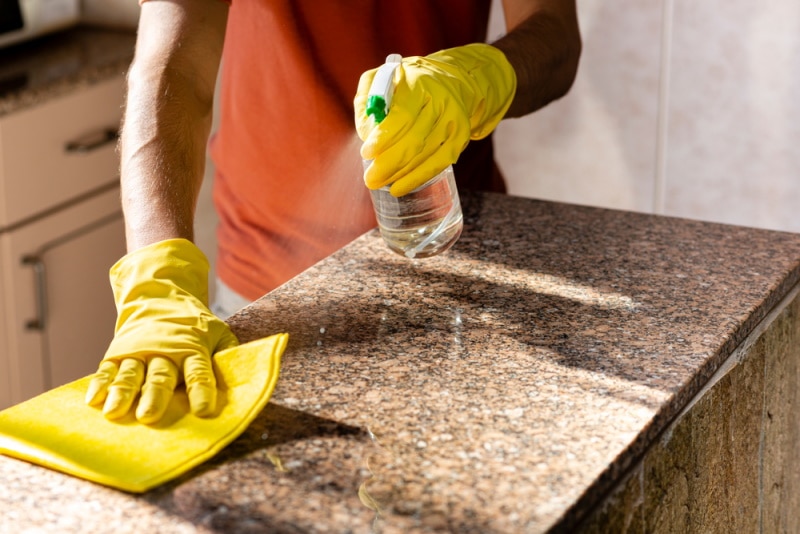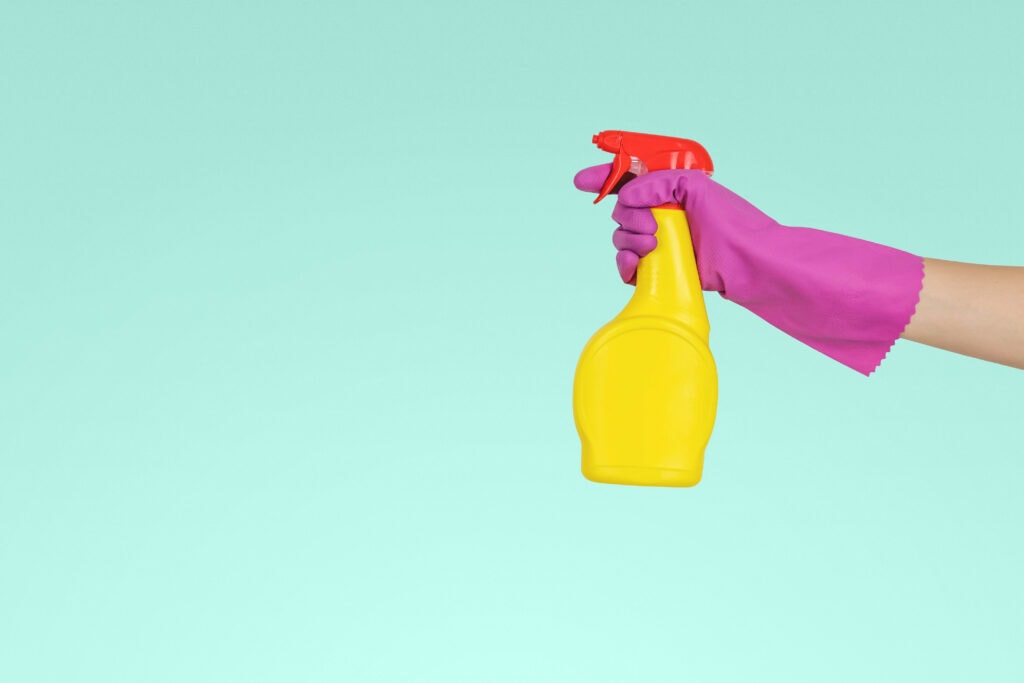Can You Use CLR On Granite? The Interesting Answer!
-
Pete Ortiz
- Last updated:

CLR is a versatile cleaning solution that you can use to clean various surfaces. But when it comes to granite, you have to be extra careful. Traditional CLR is not recommended for granite. However, CLR Pro Bath and CLR Pro Kitchen are safe for granite use.
Read on to find out more about using CLR on granite.
How Do You Remove Calcium Deposits from Granite?
Granite is a hard and durable stone, but it should be treated carefully when cleaning it. So when you’re faced with calcium deposits, you must know what you can and cannot use on your granite.
If you try to clean calcium deposits with traditional CLR, you can damage the surface of your granite and cause further staining.
However, if you’re looking for an effective way to remove tough calcium build-up from your granite, then CLR Pro Bath and CLR Pro Kitchen are both excellent options. These specialized cleaning solutions are specifically designed for granite use and are safe to use on the surface of your stone.
When using either CLR Pro Bath or CLR Pro Kitchen, make sure you follow the instructions carefully. Start by wetting the area with warm water, then apply a small amount of cleaner directly onto the calcium deposits.
Let it sit for 5 to 10 minutes, then scrub the surface gently with a soft-bristled brush. Then, simply rinse off the granite using hot water and follow up by drying it with a clean cloth.
What Is the Best Cleaner to Clean Granite?
When cleaning granite, the best cleaner is one specifically designed for use on stone surfaces. If you don’t have CLR Pro Bath or Kitchen on hand, you can also use a mild detergent or a stone-safe cleaner such as Granite Gold.

Make sure to test any cleaner in an inconspicuous area first, and always rinse the surface thoroughly after cleaning. It’s also important to avoid using abrasive cleaners or scouring pads that can scratch the surface of your granite.
One of the most common mistakes people make when cleaning granite is using traditional CLR. This cleaner should never be used on granite, as it can cause staining and damage to the surface. Stick to specialized cleaners designed for use on stone surfaces, and you’ll keep your granite looking beautiful for years to come.
How to Avoid Scratches When Cleaning Granite
Due to the nature of granite, it is unfortunately easy to scratch if you’re not careful. Aside from avoiding the use of scouring pads or harsh cleaners, it’s also crucial that you not use anything with vinegar, bleach, or lemon juice on your granite. These acidic substances can cause discoloration and etching of the stone surface.
In addition to avoiding acidic cleaners, also make sure to never use steel wool or any other abrasive material when cleaning your granite—even wiping the counter with a dry towel can cause scratches if you’re not careful.
Instead, always clean your granite with a soft cloth, sponge, or non-abrasive scrubber. And if you ever need to remove stubborn stains from your granite, opt for a specialized cleaner such as CLR Pro Bath and Kitchen instead of traditional CLR. This will ensure that your granite remains undamaged while prolonging its beauty.
Final Thoughts
Keeping your granite looking beautiful and damage-free may seem daunting, but with the right knowledge, it’s quite easy. For best results, stick to CLR’s Pro Bath and Pro Kitchen line of cleaners, and never use anything abrasive or rough on its surface.
With these tips, you can look forward to your granite shining like new.
Contents


